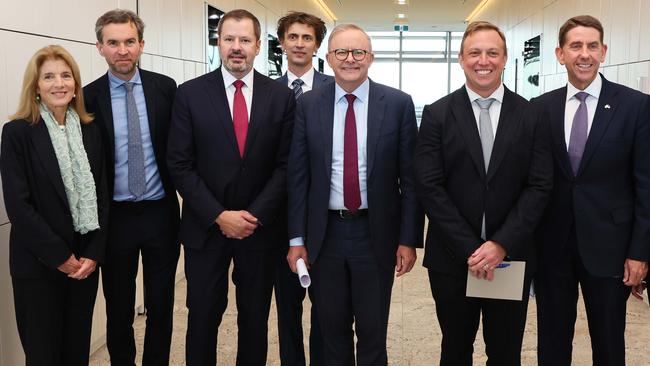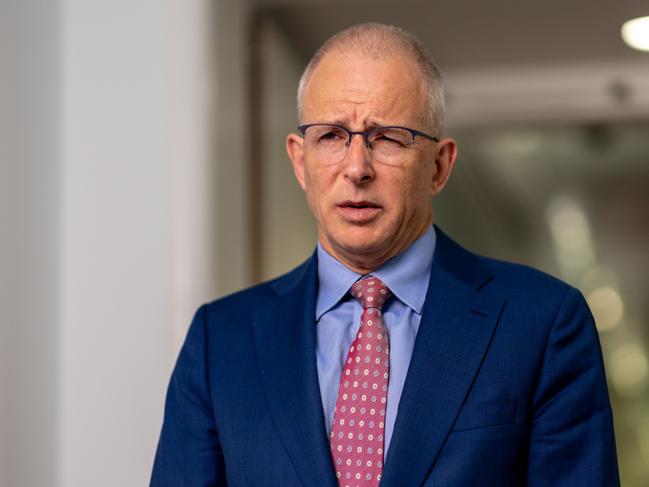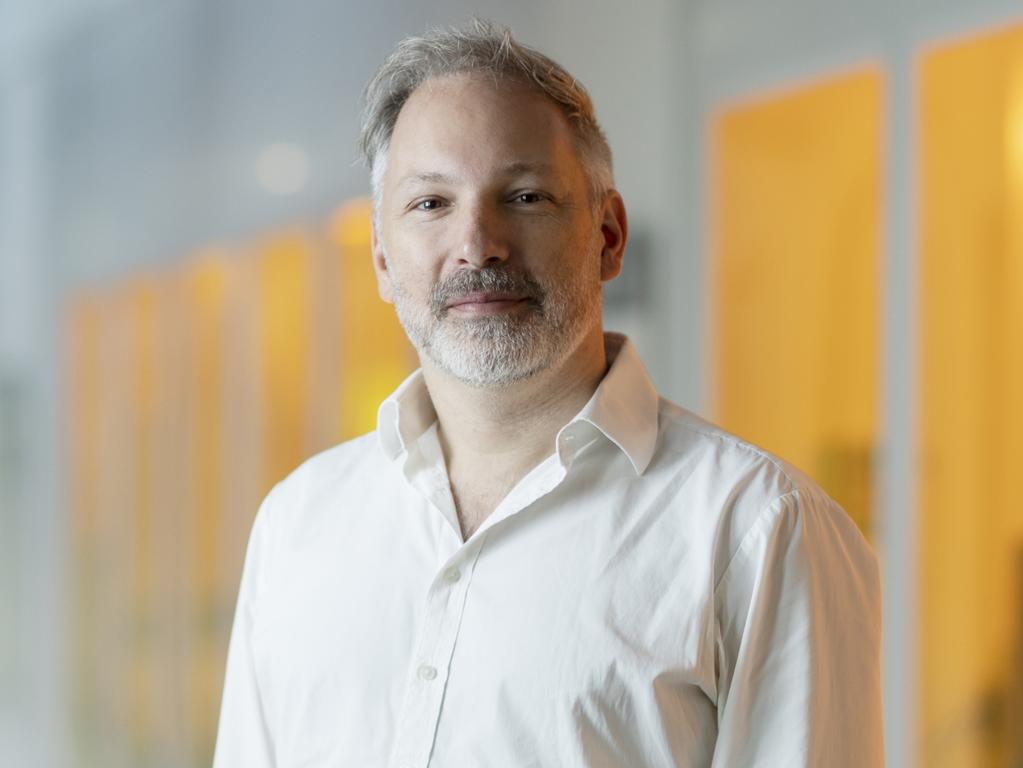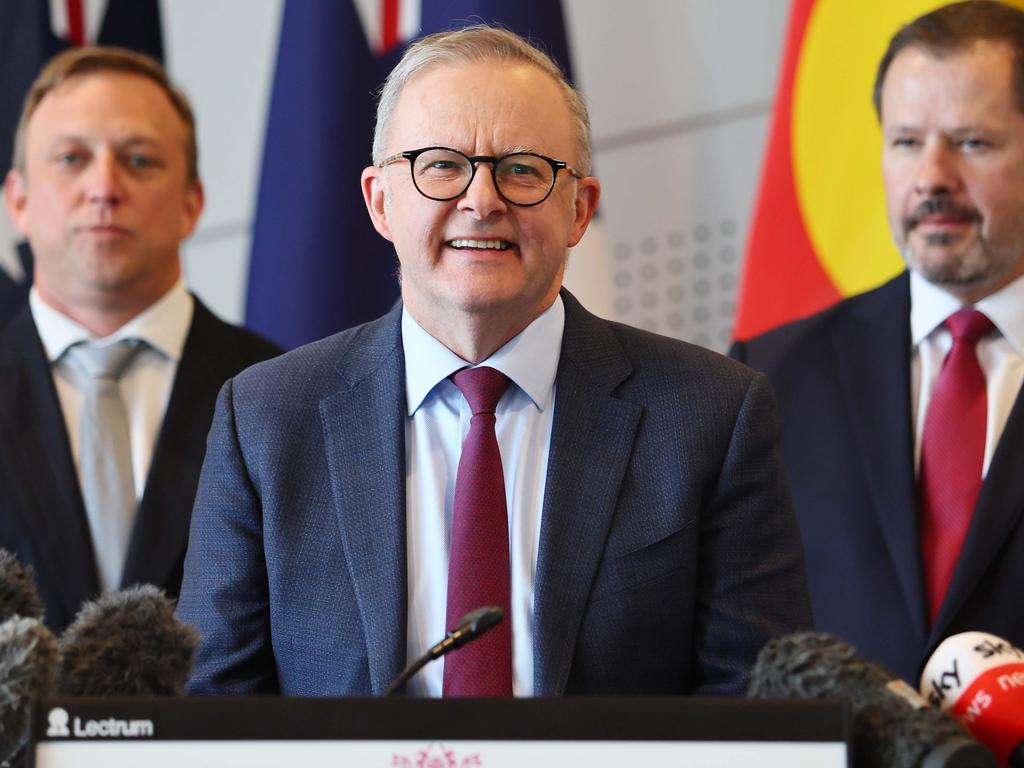PsiQuantum co-founders links to Chinese researchers
Experts from Chinese institutes deemed high-risk by security analysts listed the founders of PsiQuantum, whose firm won a $1bn government contract, as co-authors on on multiple research papers.

Chinese quantum experts and academics from universities and institutes deemed high-risk by security analysts and sanctioned by the US government have listed PsiQuantum co-founders Jeremy O’Brien and Mark Thompson as contributors on multiple research papers.
Professor O’Brien – a quantum pioneer whose US-based firm won almost $1bn in taxpayer funds to build the world’s first fault-tolerant quantum computer in Brisbane – appears as a co-author in seven Chinese-dominated research papers since 2016, including several released over the past 24 months.
The research papers have links to Chinese institutions considered high-risk by the Australian Strategic Policy Institute, including the Academy of Military Science National Institute for Defence Technology, Peking University, Zhejiang University, Chinese Academy of Sciences Institute of Microelectronics, Sun Yat-sen University and the Beijing Academy of Quantum Information Sciences.
The Australian understands Professor O’Brien and Professor Thompson taught and worked on research projects with Chinese and other international students during their time at the University of Bristol.
With China boasting the largest share of international graduates in quantum-related fields, highlighting Beijing’s push to build the world’s first quantum computer, links between Chinese academics and global quantum computing leaders are considered unavoidable. Many students who studied abroad have returned home and are working at prominent Chinese universities, government agencies and research institutions.
PsiQuantum, established by Professor O’Brien, Professor Thompson, Terry Rudolph and Peter Shadbolt in 2016, says the company has not collaborated with any Chinese universities, companies or government bodies.
It distanced its co-founders from the Chinese-linked papers, suggesting the scientific reports acknowledged historic work conducted by Professor O’Brien and Professor Thompson before PsiQuantum was founded.
PsiQuantum’s founders have written hundreds of papers, several of which are considered influential in relation to quantum computing and photonics.
While the Coalition is raising concerns over national security vetting, The Australian is not suggesting any ongoing direct links or collaboration between PsiQuantum founders and Chinese researchers or that Professor O’Brien and Professor Thompson have done anything wrong.


PsiQuantum has emerged as a major player in the US, Britain and Australia with government partnerships “spanning various technical aspects involved in building a large-scale quantum computer”.
The company holds multi-year US partnerships with government agencies including the US Defence Advanced Research Projects Agency, Department of Energy and the Air Force Research Laboratory.
PsiQuantum and Microsoft were selected to participate in DARPA’s underexplored systems for utility-scale quantum computing program.
Based in Silicon Valley’s Palo Alto, PsiQuantum is betting on photonics to help build the world’s first fault-tolerant quantum computer. Chinese researchers are also putting photonics at the heart of Beijing’s bid to beat the US and Western allies.
A spokesman for Industry Minister Ed Husic said the PsiQuantum investment was “subject to rigorous and comprehensive due diligence across several areas, including national security”.

With the Coalition set to grill senior government officials during Senate estimates hearings in Canberra this fortnight, opposition science spokesman Paul Fletcher said the PsiQuantum deal “has been cloaked in secrecy from the beginning”. He raised concerns about any links with Chinese researchers, whether the PsiQuantum funding was “considered by the National Security Committee of cabinet” and what advice was provided by the Department of Defence and national security agencies.
A PsiQuantum spokesman said the company “underwent an extremely thorough and rigorous due diligence process from the commonwealth and Queensland governments”.
“The concern PsiQuantum shares with many other government stakeholders is that China is taking quantum computing very seriously and is spending at least $15bn in their efforts to build a large-scale, fault-tolerant quantum computer.
“PsiQuantum is focused on bringing together the right talent to ensure it can build and deploy the first fault-tolerant quantum computer in the world. Australia has an outsized share of the talent in quantum computing and PsiQuantum understands that the right talent is needed to ensure it builds the first fault-tolerant quantum computer in the world.
“This also re-emphasises why PsiQuantum first reached out to the Australian government in June 2021 via Austrade and subsequently engaged with Peter Verwer’s Global Attraction taskforce.”
ASPI’s Chinese Defence Universities Tracker, last updated in 2021, classified multiple Chinese defence and civilian research bodies pursuing quantum and photonic technologies as being medium, high and very high risk.
Under a wider freeze out of China, the US Department of Commerce on May 9 sanctioned an extra 37 Chinese research institutes and universities determined to be “acting contrary to the national security or foreign policy interests of the US”. These included the Beijing Academy of Quantum Information Sciences and Chinese Academy of Sciences Institute of Microelectronics.
Research papers linked from Professor O’Brien’s Google Scholar page and promoted on PsiQuantum’s website include four reports published in 2022 and 2023 focused on quantum photonic devices, networks and computing.
Some of the authors named alongside Professor O’Brien and Professor Thompson on publicly available research papers work at Chinese institutions that ASPI previously warned are “engaged in military or security-related science and technology research”.
High-risk institutions include Peking University, Shanghai Jiao Tong University, Zhejiang University and Sun Yat-sen University. Very high-risk research bodies include the National University of Defence Technology Changsha and Academy of Military Science National Innovation Institute of Defence Technology.
Mr Husic, who first met with PsiQuantum in October 2022 and visited the company’s headquarters in January last year, has come under pressure for not releasing details around due diligence and the hand-picked expression of interest process launched in August last year. The federal and Queensland governments have each committed $470m backing PsiQuantum’s yet-to-be-developed fault-tolerant quantum computer in Brisbane.
Mr Fletcher said if Mr Husic “is confident this process met national security standards, then he should prove it and provide evidence … simply saying so isn’t good enough”.
Mr Husic’s spokesman said the Coalition “sent the car industry packing when they were in power, and still have no plan for the future – always negative, always nasty”.
“Our investment in PsiQuantum to build the world’s first fault-tolerant quantum computer and establish an Asia-Pacific headquarters in Brisbane will be an important contributor to our long term economic and national security.”







